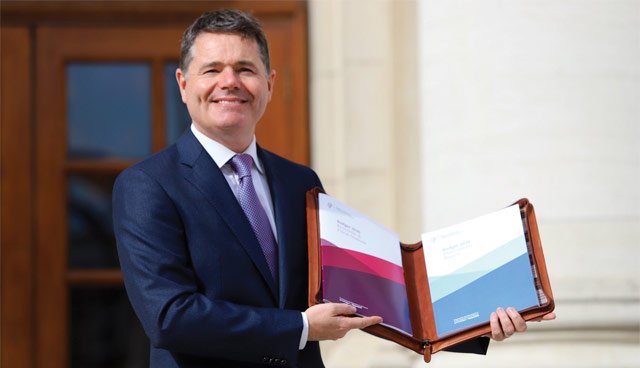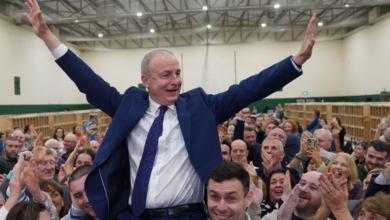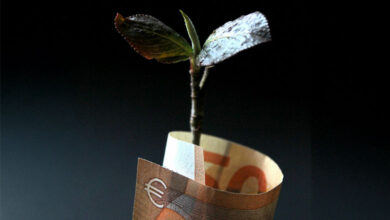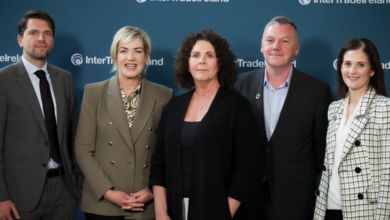An unprecedented budget

Minister for Finance, Public Expenditure and Reform, Paschal Donohoe TD called Budget 2020 “a budget without precedent” as he launched the overall package of €2.9 billion in front of the Dáil in October.
Donohoe told the chamber that the Budget had “been developed in the shadow of Brexit and the context for Brexit has now shifted to no deal as our central assumption”. Accordingly, a Brexit package worth €1.2 billion was announced.
Although the Minister stressed that the position and preparation “does not mean no deal is inevitable”, the following was announced in the event of a no deal Brexit:
- €220 million to be immediately deployed;
- €650 million for the agriculture, enterprise and tourism sectors;
- €85 million for beef farmers;
- €6 million for other livestock farmers and the mushroom sectors;
- €14 million for the fishing industry;
- €5 million for the food and drink industry;
- €365 million for extra social protection expenditure benefit; and
- A €45 million fund in order to aid people’s transitions into new lines of work.
Donohoe said that “responsible management of the public finances means we will meet the challenge of a no deal Brexit from a position of strength”, pointing to the elimination of the country’s deficit and the projection of a surplus that would be 0.2 per cent of the country’s GDP.
Climate
The Budget immediately lifted the carbon tax from €20 per tonne to the €26 per tonne, falling short of the Climate Change Advisory Council’s recommended increase of €15 to €35 per tonne, with other carbon taxes slated to come into effect in May 2020.
The 1 per cent diesel surcharge that was introduced in Budget 2019 has now been replaced by a nitrogen oxide (NOx) emissions-based charge that will operate on a €/mg/km basis and will increase with the level of NOx emitted. The new charge will apply to all passenger cars registering from 1 January 2020 onwards.
VRT relief for hybrids vehicles and the zero-rate placed on electric vehicles have both been extended to 2020, while €8 million has been pledged towards grants to assist people in purchasing EVs. €13 million has been pledged towards the warmer homes scheme in order to provide free energy efficiency to households who are deemed to be in or in danger of energy poverty and an extra €5 million has been committed towards the rehabilitation of peatland.
The climate actions contained within the Budget have been criticised, with many claiming that its failure to introduce levies on single use coffee cups, a commercial air transport tax and the lack of investment in the circular economy represent a failure on the Government’s part.
Health
Health saw its spending increased by €1 billion, up to €17.4 billion, with the headline provisions being free GP care for children under eight and free dental care for children under six from September 2020 onwards.
An additional one million hours of home care have been pledged, coupled with a 50 per cent cut in prescription charges. These extra hours will, in part, be achieved by the slated recruitment of 1,000 new therapists, nurses and other medical professionals, although the current gap is estimated to be at two million hours needed.
The monthly threshold for the drug payment scheme has been reduced by €10 per month, while medical card income thresholds for over 70s have been raised by €50 for single persons and €150 for couples per week. €25 million has also been pledged towards the reduction of waiting lists, but this in particular has come under fire, with critics claiming that it is not nearly enough to tackle the record high number of outpatients waiting on procedures, which reached 556,411 in May 2019.
Housing
In the sector for which the Government has received the most criticism, Minister Donohoe announced an extra €80 million for the Housing Assistance Payment, that that the Help-to-Buy scheme had been extended in its current form to the end of 2021 and that an extra €20 million had been allocated for homeless services, bringing that figure to €166 million for the year 2020.
“This is an unprecedented level of investment, which will allow Government to continue to respond to the significant increase in demand for housing supports while also prioritising investment in the social housing programme… Government policies are helping but more needs to be done.”
— Paschal Donohoe TD, Minister for Finance, Public Expenditure and Reform
Donohoe called the €2.5 billion budget given to housing “an unprecedented level of investment” and the Government will surely hope that these levels can go some way towards solving the housing and homelessness crisis that has scarred the country for years now, although the level of investment has still come under attack. €1.1 billion of capital funding has been invested in the deliverance of social housing, but this funding is slated to deliver 11,000 social homes in 2020 and 12,000 in 2021 at a time when there are 71,858 households on the social housing waitlists.
An extra €2 million in support for the Residential Tenancies Board was also announced in order to “support their increased powers to investigate and sanction non-compliance with Rent Pressure Zone measures”.
Agriculture and the rural economy
At a time when agriculture is so central to both of Ireland’s most pressing political issues, climate disaster and Brexit, additional funding of €51 million and €17 million were pledged to the Department of Agriculture, Food and the Marine and the Department of Rural and Community Development respectively.
€3 million has been pledged toward the piloting of new agri-environmental schemes as a means of tackling the sector’s emissions, which account for 33 per cent of Ireland’s total emissions, while the farm restructuring relief programme has been extended in its current form until the end of 2022.
In terms of the broader rural communities, the €384 million increase in funding for the Department of Transport, up to €2.7 billion, will include investment in the provision of more comprehensive rural transport. The agricultural and rural aspects of the Budget have been some of the more well received measures, although it has been noted that much of the plans depend on the successful and smooth implementation of the National Broadband Plan.
Social welfare
The Department of Economic Affairs and Social Protection received a €690 million funding boost in the Budget. Minister Donohoe said that this rise was “more moderate and targeted” to enable the Government to: “Maintain the increases in welfare rates from previous years; support the elderly and children and families at risk of poverty; and protect the most vulnerable from the impact of the carbon tax.”
There were increases to the living alone allowance, qualified child payments and the fuel allowance; they saw rises of €5, €3 for over-12s and €2 for under-12s and €2 per week respectively. Along with a €15 increase for the One Parent Family Payment income disregard and a €10 increase for the Working Family Payment disregard, Minister Donohoe also announced that all social welfare recipients in 2019 would be on the receiving end of a 100 per cent Christmas bonus.





